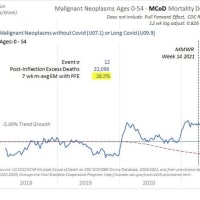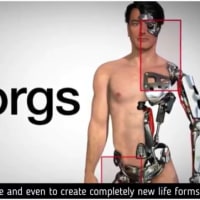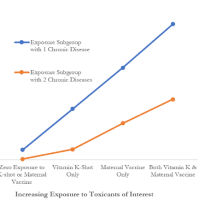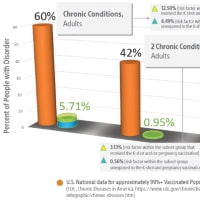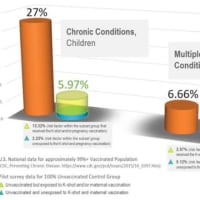No.2 ラリー・ドッシー博士『One Mind (1つの心)』インタビュー 2
p.4
This experience carries with it the sense that one has apprehended Truth, the way things really are, accompanied by a feeling of compassion and love.
この経験には、思いやりと愛情を伴った、物事の本当のあり方、つまり真実を理解したという感覚があります。
~
There are allusions to this understanding, this perception, in the New Testament.
新約聖書には、この理解、この認識に対する暗示があります。
St. Paul spoke of “the peace of God that passes all understanding.”
聖パウロは「すべての理解を手渡す神の平和」について語りました。
As mythologist Joseph Campbell put it, Jesus said that the kingdom of heaven is within.
Who is in heaven? God. This means, Campbell said, that God is within each person — infinite, boundless, immortal, one.
神話学者のジョセフ・キャンベルが言ったように、イエスは天国は内にあると言われました。
誰が天国にいますか? 神です。 これは、神、すなわち無限、無限、不滅のものは、それぞれの人の中にいるということを意味しているとキャンベルが言いました。
Ralph Waldo Emerson, the American transcendentalist philosopher, called the One-Mind concept the Over-soul.
アメリカの超越論的哲学者であるラルフ・ウォルド・エマーソンは、「1つの心」の概念をOver-soul(大霊)と呼びました。
Carl Jung, the Swiss psychologist, called the One Mind the collective unconscious.
スイスの心理学者であるカール・ユングは、「1つの心」を集合無意識と呼びました。
William James, the founder of American psychology, was a proponent of a single, collective, unitary mind.
アメリカの心理学の創始者であるウィリアム・ジェームズは、単一の集合的な統一された心の支持者でした。
~
Many great scientists in a variety of fields have endorsed the idea.
さまざまな分野の多くの偉大な科学者がこのアイデアを支持しています。
It has surfaced in modern physics in the writings of Nobel Prize winner Erwin Schrödinger, whose wave equations lie at the heart of quantum physics.
量子物理学の中心に位置する波動方程式が、ノーベル賞受賞者アーウィン・シュレーディンガーの著作で、現代物理学に登場しました。
The eminent physicist David Bohm also strongly supported the idea of a single, over-arching mind that includes all individual minds.
著名な物理学者デイビッド・ボームは、個々のすべての心を含む単一の包括的な心という考えも強く支持しました。
~
So, the idea of the One Mind began millennia ago and persists to the present day, and it is supported by some of the outstanding figures in modern science and psychology, as well as untold numbers of creative artists.
それで、「1つの心」のアイデアは何千年も前に始まり、今日まで続いており、現代の科学と心理学の傑出した人物の一部と、膨大な数の創造的なアーティストによって支持されています。
3. If the idea of the One Mind is both ancient and current, why do we need another book about it?
3.「1つの心」のアイデアが古代と現在の両方である場合、なぜそれについて別の本が必要なのですか?
Up to now, the concept of the One Mind has rested mainly on philosophy, spiritual insights, and reports of people’s personal experiences.
これまで、「1つの心」の概念は、主に哲学、精神的な洞察、および人々の個人的な経験の報告に基づいていました。
Not anymore! We have an abundance of empirical evidence pointing to the One Mind.
もう違います! 私たちには、「1つの心」を指し示す豊富な経験的証拠があります。
But the evidence is little known. So, we need an update of the One Mind, in which we bring together the numerous threads of evidence for the idea.
しかし、その証拠はほとんど知られていません。そのため、私たちは「1つの心」を最新のものにする必要があります、その中で、私たちはこの概念に関する数多くの脈絡の証拠を集めます。
4. What kind of evidence supports the idea of the One Mind?
4.どのような証拠が「1つの心」の概念を裏づけていますか?
There are basically two types of evidence.
基本的に2種類の証拠があります。
One is empirical evidence, which includes actual experiments.
1つは、実際の実験を含む経験的証拠です。
Another type of evidence is experiential and personal — the reports of thousands of individuals that affirm what the experiments are telling us.
別の種類の証拠は経験的で個人的なもの— 実験が私たちに伝えていることを肯定する何千人もの個人の報告です。
These two types of evidence reinforce each other.
これらの2種類の証拠は互いに補強します。
5. How did you become interested in the One Mind?
5.どのようにして「1つの心」に興味を持ちましたか?
I have had several experiences suggesting that my mind, my consciousness, my awareness, is not limited to my individual brain and body or the present.
私は、私の心、意識、知覚が、個人の脳と体または現在という時間に限定されないことを示唆するいくつかの経験をしました。
I’m not unique; thousands of individuals have had similar experiences.
私はその経験をしたただ一人の人間ではありません。 何千人もの個人が同様の経験をしました。
But people are reluctant to talk about them for obvious reasons. There’s a social stigma in going public with these experiences.
しかし、人々は明らかな理由でそれらについて話すことを嫌がります。 これらの経験を公開することには社会的不名誉があります。
p.5
Early in my practice of internal medicine I had a series of precognitive dreams — dreams of future events — that proved true in great detail.
内科医の診療経験の早い段階で、一連の予知的な夢、つまり将来の出来事の夢を見ており、非常に詳細に渡って真実であることが証明されました。
My patients related similar experiences to me. So did nurses. After I began to write about these events, my medical colleagues eventually began to open up and share their own experiences with me.
私の患者は私に似たような経験をしました。 看護師もそうでした。 私がこれらの出来事について書き始めた後、私の医療の同僚は最終的に自分自身の経験を公開し、私と自分の経験を共有し始めました。
During my early years as a physician, I stumbled across actual experiments affirming the idea of linked, unified minds. This was rather shocking, as this evidence never came up during my entire educational experience, from university days through post-graduate medical training. I began to consider this one of the best-kept secrets of modern medicine.
医師としての初期の頃、私は実際の実験に出くわし、リンクされた統一された心のアイデアを確認しました。 これはかなり衝撃的でした。この証拠は、大学時代から卒業後の医療訓練まで、私の教育経験全体では決して現れませんでした。 私はこれを現代医学の最高の秘密の一つと考え始めました。
I was stunned to find that first-rate individuals — some of our greatest scientists and philosophers — have come to the same conclusion I reached: that there is a collective, single domain of consciousness that is a kind of umbrella to all individual minds.
一流の個人- 私たちの偉大な科学者や哲学者の何人かは、私が到達したのと同じ結論に達したことを発見して驚きました。
つまり、集合的な単一の意識領域があり、それはすべての個人の心の一種の包括体であるということです。
6. But there’s a huge problem, isn’t there? Currently, brain science as well as psychology doesn’t agree with you about the One Mind.
6.しかし、大きな問題がありませんか? 現在、心理学だけでなく脳科学も、「1つの心」についてあなたに同意していません。
Not really. 実際には同意していません。
It is not quite right to say that most scientists don’t agree. For the most part, they simply ignore the whole question and don’t look at the evidence.
ほとんどの科学者が同意しないと言うのはまったく正しくありません。 ほとんどの場合、彼らは単に問題全体を無視し、証拠を見ません。
The fact is, an increasing number of leading scientists and psychologists support this idea.
事実、この考えを支持している有力な科学者や心理学者が増えています。
For instance, one survey found that a majority of academic scientists believe that extrasensory perception or ESP has already been proven or is likely to be proved.
たとえば、ある調査では、学者の大半が超感覚的知覚またはESPがすでに証明されている、または証明される可能性が高いと信じていることがわかりました。
ESP is an expression of minds without boundaries in space or time. It is a short step from ESP to the One Mind. ESP is one way the One Mind manifests in our lives.
ESPは、空間と時間に限界のない心の表現です。 それはESPから「1つの心」への短いステップです。 ESPは、「1つの心」が私たちの生活に現れる1つの方法です。
7. What’s the big deal? What difference does it make whether I believe in the One Mind or not?
7.大事なことは何ですか? 「1つの心」を信じるかどうかにかかわらず、それはどのような違いをもたらしますか?
(Repeat answer from #1) (#1の回答を繰り返す)
The consequences are profound. その結果は深遠です。
People who tune in to the One Mind are more likely to be happier, healthier, more creative, and wiser than those who do not.
「1つの心」に同調する人は、そうではない人よりも、より幸福で、より健康で、より創造的で、より賢明です。
~
Abundant evidence shows that isolation is terrible for health and happiness.
豊富な証拠は、孤立(分離)は健康と幸福にとり恐るべきものであることを示しています。
We are not designed to live apart.
私たちは、分離して生きるように設計されていません。
A sense of being united and connected with all others and with all sentient life has been recognized throughout human history as a source of immense joy and fulfillment.
他の全てのもの、全ての意識を持つ生命体と統合し結合している感覚は、強力な喜びと満足感の源として、人の歴史を通して認識されています。
(訳注:宇宙の万物・森羅万象を創造して動かしている根源的知性体(真如・空)と結合・統合は、喜びと満足感であろうが、個別化された生命体や人との結合は、非常に小さなもの、または人の歪んだ考えや心に限定されているため、喜びや満足をもたらすとは思えない)
p.6
This greater mind is also boundless in time, therefore it is immortal and eternal. It is a cure for the greatest of all diseases: the fear of total annihilation with physical death.
この偉大な心は、時間の境界がなく、それ故、不滅であり永遠です。全ての病気の中で最大のものである、肉体的な死に伴う完全な絶滅の恐怖に対する治癒です。
The One Mind is also a source of great wisdom and creativity, because it is an infinite pool of information that we can learn to access, as many famous artists and scientists have done throughout history.
「1つの心」は、偉大な知恵と創造性の源でもあります、なぜならば、多くの有名な芸術家や科学者が歴史を通じて行なったように、私たちがアクセスして学習できる情報の無限な貯蔵庫だからです。
~
Currently, we’re taught that our consciousness is produced by the brain and is limited to the physical brain and body.
今現在、私たちの意識は、脳により作り出され、身体的な脳と身体に限定されていると私たちは教えられています。
This means that when we die, our mind, our consciousness, is annihilated.
このことは、私たちが死ぬとき、私たちの心、意識は、絶滅することを意味しています。
Nothing about our consciousness survives.
私たちの意識は何一つ残りません。
The One Mind is a wholly different view.
「1つの心」は、全く異なる見解です。
Its premise is that our consciousness transcends the physical brain, body, and the present.
その前提は、私たちの意識は、肉体的な脳、身体、そして現在という時間を超越しているということです。
The evidence overwhelmingly suggests that our mind is nonlocal in space and time.
圧倒的な証拠が、私たちの心は、空間と時間において、非局在的であることを示唆しています。
“Nonlocal” is just a fancy word for “infinite.”
「非局在的」は、「無限」の代わりの聞こえの良い言葉にすぎません。
If something about our mind is infinite in space and time, then it is omnipresent in space and time and therefore immortal.
私たちの心に関する何かが空間と時間において無限であるならば、それは空間と時間において偏在であり、それ故、不死です。
Although the brain and body will perish, consciousness endures because of its nonlocal nature.
脳と身体は死にますが、意識は、その非局在的な性質により持続します。
Therefore the One Mind redefines death.
それ故、「1つの心」は、死を再定義します。
With the One Mind, immortality is back on the table.
「1つの心」により、不死が再び議論のテーブルにのぼります。
So the concept of the One Mind is not trivial.
そのため、「1つの心」の概念は、些細なことではありません。
It’s about our origin and destiny.
それは、私たちの起源と運命に関するものです。
It’s about survival, which many people consider the greatest issue of all.
それは、多くの人があらゆるものの中で最大のものと考えている生存に関するものです。
~
The One Mind concept also says we are intimately connected with every living thing that has any degree of mind or consciousness — which I believe includes all living creatures to some degree.
「1つの心」の概念は、私たちは、あらゆるレベルの心または意識を持っている全ての生物(全ての生物をある程度含むと私は信じています)と親密に結合していることも述べています。
This makes possible a sense of relatedness and sharing that goes beyond the “merely human.”
このことは、「単なる人間」を越えた関連性と共有の感覚を可能にします。
Our relations include all life on earth.
私たちの関連は、地球上の全ての生命を含みます。
This makes possible a degree of emotional connectedness that can spur us to the kind of action that is required for our survival as a species on this planet.
このことは、この惑星上の種としての私たちの生き残りに必要なある種の行動に私たちを駆り立てる、ある程度の情動的な結合を可能にします。
A new ethic and a sense of urgency arise.
新しい倫理と緊急性の感覚が沸きます。
Just as a parent chooses to protect his or her own children, we sense, through the One Mind, that we must protect our relations with whom we share consciousness, which includes all of life on earth.
両親が自分の子供を保護するために選択するのと同様に、私たちは、「1つの心」を通して、地球上の全ての生命を含む意識を共有するものとの関連を守らなければならないと私たちは感じます。
~
The new ethic makes it possible to expand and revise the Golden Rule.
この新しい倫理は、黄金律を拡大し見直すことを可能にします。
We no longer say, “Do unto others as you would have them do unto you.”
私たちはもはや「他人からして欲しいことを他人にしなさい」とは言いません。
Now we say, “Be compassionate to others because in some sense they are you.”
今では私たちは、「他人に対して思いやりを持ちなさい、なぜならば、ある意味では他人はあなただからです」と言います。
~
As novelist Alice Walker said, “Anything we love can be saved.”
小説家のアリス・ウォーカーは「私たちが愛するものは何であれ、救うことができる」と述べました。
The One Mind makes it more likely we will love the Earth deeply enough to save it, which really means saving ourselves and our descendants.
私たちが地球を救うのに十分なほどに愛すること、それは本当は私たち自身と私たちの子孫を救うことを意味するのですが、「1つの心」は、それをより容易にします。
p.7
8. There are several sections in your book about animals. Are they part of the One Mind?
8.あなたの本には動物に関する幾つかの章があります。それらは「1つの心」の一部ですか?
Yes. そうです。
Several experiments show that we can interact mentally with animals at a distance, beyond the reach of the physical senses.
いくつかの実験は、肉体的な感覚の範囲を超えて、遠く離れた動物と精神的に相互作用できることを示しています。
One example is British biologist Rupert Sheldrake, whose experiments with dogs show that when their owners are returning home there is conscious link between the human and the animal at a distance.
1つの例は英国の生物学者ルパート・シェルドレイクで、彼の犬を使った実験では、飼い主が家に帰ると、人間と遠く離れた場所の動物が意識的にリンクしていることが示されています。
Other mammals, birds, and fish also demonstrate an ability to process information at a distance and outside the present.
他の哺乳類、鳥、および魚も、遠く離れたそして現在ではない時間の情報を処理する能力を示しています。
Many ethologists, experts in animal behavior, have marveled at the way groups of animals — herds, flocks of birds, schools of fish — demonstrate group behavior and coordinated decision making that is very difficult to explain without invoking a kind of group mind operating simultaneously between all the members of the group.
動物行動の専門家である多くの動物行動学者は、群れ、鳥の群れ、魚の群れなどの動物の群れが、群れ行動と協調的な意思決定を示すやり方に驚いており、群れの全てのメンバーの間に同時に作動する一種の「群れの心」を想定せずに説明することは非常に困難です。
Ordinary sensory communication via sight and hearing just doesn’t add up.
視覚と聴覚を介した通常の感覚的コミュニケーションだけでは説明できません。
9. You’re a physician. Does this have anything to do with your interest in the One Mind?
9.あなたは医師です。このことは、「1つの心」に対するあなたの関心と何か関連があるのですか?
Yes, definitely. はい、あります。
During my early career as an internist, I experienced several events that turned my views of consciousness upside down and inside out. I found these experiences unnerving.
内科医としての私の初期の経歴で、意識に関する私の見解を根底から覆す幾つかの事象を経験しました。私は、これらの経験に驚きました。
I was a typical believer that mind and brain were essentially the same.
私は、心と脳は本質的に同一であることを典型的に信じている者でした。
But when I began experiencing precognitive dreams, gaining information from the future before the event happened, I began to question the dogma that says these events can’t happen.
しかし、私が予見的な夢を経験し始め、その事象が起こる前に未来から情報を得たとき、これらの事象は起こらないと言う教義に疑問を持ち始めました。
It wasn’t just me; my patients, as well as nurses and other doctors, shared similar experiences with me.
それは私だけではなく、私の患者、並びに看護師と他の医師も、私と類似した経験を共有しました。
~
In the late 1980s, experiments began to be published in medical journals assessing the impact of healing intentions and prayers on the clinical course of patients in distant hospitals and coronary care units.
1980年代後半に、遠隔地の病院や冠動脈治療室の患者の臨床経過に対する治癒の意図と祈りの影響を評価する実験が医学雑誌に発表され始めました。
Similar experiments were done non-humans and with organs and cells.
同様の実験が、人間以外の器官と細胞で行われました。
These experiments strongly implied that our mind is not confined to our brain.
これらの実験は、私たちの心が私たちの脳に限定されないことを強く暗示しています。
Our intentions, thoughts, and wishes can reach out beyond the body and make a difference in “the world out there.”
私たちの意図、思考、願いは、体から外に出て行き、「体の外にある世界」に変化をもたらすことができます。
~
Several evaluations of this field have been published, called systematic or meta-analyses.
システマティック分析またはメタ分析と呼ばれるこの分野の評価がいくつか公開されています。
This is a way of combining the results of many studies in order to take an overall look at a particular field.
これは、特定の分野を全体的に見るために、多くの研究の結果を組み合わせる方法です。
Many of these analyses have been published in peer-reviewed journals.
これらの分析の多くは、査読済みのジャーナルに掲載されています。
Most of them are positive, indicating that these effects are real.
それらのほとんどはポジティブであり、これらの効果が本物であることを示しています。
Still, they have not penetrated our awareness as they should.
それらの評価結果は、私たちの認識に浸透すべきなのですが、現実にはまだ浸透していません。
~
It is vital to realize — and this is almost always ignored by skeptics — that scores of these experiments deal with effects not just in humans but in animals, plants, microbes, and even chemical reactions.
これらの実験の評価は、人間だけでなく、動物、植物、微生物、さらには化学反応の効果を扱っていることを理解することが不可欠ですが、これはほとんどの場合、懐疑論者によって無視されます。
Why important? なぜ重要なのですか?
Skeptics generally say that if a person responds to, say, the healing intentions of a distant individual, it is merely a placebo effect — the result of positive thinking, suggestion, or expectation.
懐疑論者は一般に、例えば、ある人が遠く離れた人の癒しの意図に反応した場合、それは単なるプラセボ効果、つまり、肯定的な思考、暗示、または期待の結果であると言います。
p.8
But if an animal, plant, microbes, or biochemical reactions are affected, the distant effect cannot be dismissed as a placebo even because, as far as we know, animals, plants, microbes, and chemicals don’t think positively.
しかし、動物、植物、微生物、または生化学的反応が影響を受けた場合、私たちが知る限り、動物、植物、微生物、および化学物質は前向きに考えないので、遠く離れた効果はプラセボ効果として却下することはできません。
They don’t have placebo responses.
それらはプラセボ応答をしないのです。
So these non-human studies strongly suggest that the remote, distant, consciousness-mediated healing effects and similar nonlocal phenomena are real, and that we are not fooling ourselves.
したがって、これらの人以外での研究は、遠く離れた、距離のある、意識が媒介する治癒効果と類似した非局所的現象が実際に存在しており、悪ふざけではないことを強く示唆しています。
~
These various experiments point toward the One Mind.
これらのさまざまな実験は、「1つの心」を指し示しています。
They show that some aspect of our consciousness operates outside the human brain and body, and cannot be confined or limited, but is nonlocal or limitless.
それらは、私たちの意識のある側面が人間の脳と体の外側で働き、閉じ込めたり制限したりすることはできず、非局所的または無限であることを示しています。
And if limitless, the mind has no boundaries and must come together with all other minds.
そして、無限であれば、心には境界がなく、他のすべての心と協同的に作用しなければなりません。
~
Other studies called “presentiment” experiments or experiments in “anticipatory awareness,” show that we can acquire information from the future, before an event even happens.
「予感」実験または「予測知覚」の実験と呼ばれる他の研究は、ある事象が起こる前に、未来から情報を取得できることを示しています。
~
Putting this evidence together, a nonlocal picture of consciousness emerges, which means that our minds are not localized or confined to particular points in space or time.
この証拠をまとめると、意識の非局所的な実像が現れます。これは、私たちの心が空間や時間の特定の場所に限定されたり、閉じ込められたりしないことを意味します。
And if our minds are unbounded, they must in some dimension come together to form a single mind, a single entity: the One Mind.
そして、私たちの心が無制限である場合、それらは何らかの次元で一緒になって、単一の心、単一の存在、すなわち「1つの心」を形成する必要があります。










